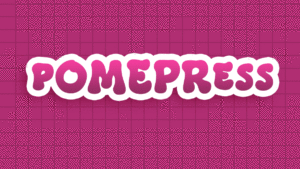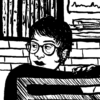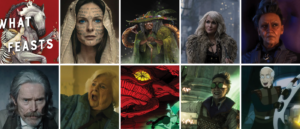
Announcing: A New Era of POMEpress (and Two New Books)!
A raven wearing a tattered Comrade Himbo muscle tee has just landed on your windowsill to let you know that there is News from the


A raven wearing a tattered Comrade Himbo muscle tee has just landed on your windowsill to let you know that there is News from the

So much has changed in the ten years since we first began collecting and cataloging the great crones of our time, but much yet remains the same. Namely: our continued commitment to evil hag representation in media.

Today we’re covering Victoria Grace Elliott’s Please Be My Star: a Phantom of the Opera-tinged romance between two theater kids that dares to ask: can hotties be sickos??? [affectionate].